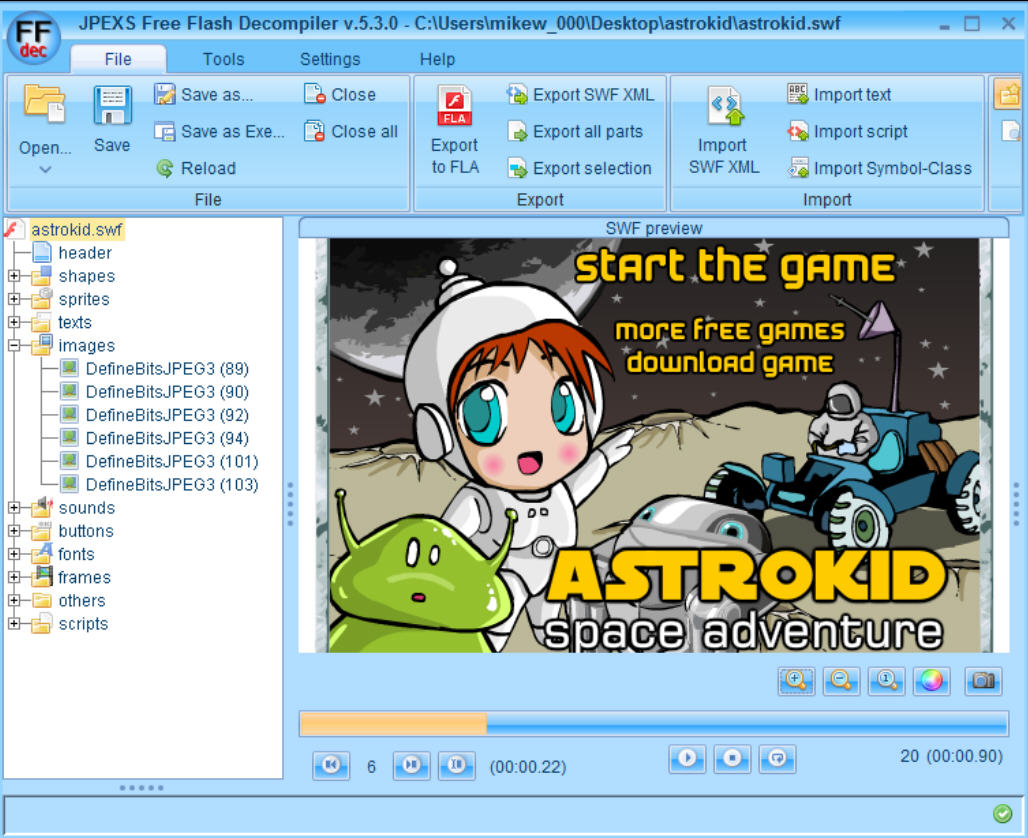
If you need to know more about a Windows executable then there are plenty of low-level tools which can help: PEStudio analyses the file itself, Resource Hacker gives you access to its icons and images, Process Monitor records what it does, and so on.
Flash files -- SWFs -- aren’t as well supported, but you do have a few options, and JPEXS Free Flash Decompiler is one of the best.
The program’s abilities are obvious immediately. It doesn’t just open an SWF directly: you’re able to search the Chrome or Firefox cache for the file you need, and it can even scan the RAM of any process for SWFs. (This didn’t work with Firefox on our test PC, but we had no problems with Chrome and other apps.)
Once you’ve opened something its various resources are displayed in a tree: shapes, sprites, buttons, fonts, frames, scripts and more.
Expanding a section like Images displays whatever the applet contains. Right-click and you can export a resource for use elsewhere, or replace it with something else (swap that annoying soundtrack for something more bearable, perhaps).
If you’re investigating what a file does then you might use a Text Search to locate interesting strings (try HTTP , say), or just dive straight into the Scripts section.
Experts can go further, deobfuscating and even directly editing ActionScript code.
But the program isn’t just for geeks. Even if you’ve no idea what ActionScript is, you’ll still be able to open an SWF, then save it as a Windows EXE, ready to run directly on the desktop.
If you might ever want to work with SWFs, then JPEXS Free Flash Decompiler is a must-have. It’s open source, no-strings free, and available in a Java form which runs on Windows, Mac and Linux.

